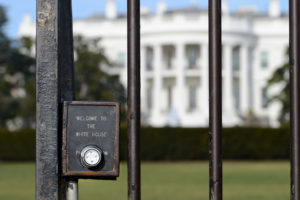
Protection of these public lands is an important government function and, as such, there are strict rules in place that prohibit certain types of unlawful misconduct on those public lands.
In some cases, a defendant who engages in misconduct and who does prohibited acts on public lands can actually be charged with a federal criminal offense that carries harsh penalties.
LV Criminal Defense can provide help in circumstances where you have been accused of violating laws connected with public lands. We have successfully represented clients in Nevada, Utah, Oregon, Arizona, California, and surrounding areas and we can put our extensive knowledge of the federal penal code to work on your case.
To find out more about how our firm can help you to fight charges related to misuse of public lands, reach out to our federal criminal defense lawyers today.
The federal statutes that define crimes on public lands and impose penalties for those crimes are found in 18 U.S. Code Chapter 91. There are 16 statutes within 18 U.S. Code Chapter 91, but one of those statutes, 18 U.S. Code section 1862, has been repealed. The remaining statutes include the following:
Nick Wooldridge has a long track record of representing clients accused of serious federal and state crimes in Nevada.
Each of these different statutes establishes the definition of a specific federal crime that could occur due to misuse of public lands. For example, 18 U.S. Code section 1852 defines the crime of removing or transporting timber.
According to the relevant statute, wantonly destroying or cutting timber that grows on public lands, or removing timber from public lands with intent to export or dispose of it, can be charged. An operator of a motor vehicle, aircraft, or any type of vessel or equipment that transports timber cut or removed from public lands can also be charged as well. If convicted of removing, cutting, or destroying timber – or helping with the transport of such timber – a defendant could face up to a year of imprisonment as well as a fine.
A year of imprisonment can also be imposed upon a defendant convicted of boxing or pitching trees for turpentine under 18 U.S. Code section 1854. Defendants can be charged under this statute if they cut, chip, chop, or box any tree on federal lands or if they buy, trade for, or otherwise acquire pitch, turpentine or other related substances with knowledge that it was collected unlawfully from trees on federal lands.
However, a harsher penalty – up to five years of imprisonment – could be imposed under 18 U.S. Code section 1855 for setting timber afire. For a defendant to be convicted of this offense, a prosecutor would need to show that the defendant set a fire willfully and without authority. A defendant could be charged for willfully setting afire any timber, underbrush, grass, or other flammable material on public lands under the control of the federal government.
Because each of these statutes has its own specific definition, defines the elements a prosecutor needs to prove, and establishes its own applicable penalties, defendants need to know the details of the crime that they have been charged with when they’re accused of criminal conduct on public lands.
When I initially met with Mr. Wooldridge, he took the opportunity to sit and go over my problem with me. He described details in my case which he found disturbing and explained why he I should have him on my side.
Hiring a federal defense attorney familiar with the rules in 18 U.S. Code Chapter 91 is important so defendants will know the specifics of the charges that they face.
When you’ve been accused of a violation of any of the statutes within 18 U.S. Code section 1851, it is imperative that you have the right legal help to fight serious accusations against you. LV Criminal Defense will work closely with you to determine the specific elements of the crime you’ve been accused of committing and can help you to determine if the evidence the prosecutor has is likely to lead to conviction. With knowledge of how the criminal law applies to your situation, we can advise you whether to plead guilty and aim for a reduced sentence or to fight the charges.
In every circumstance, our goal is to help you get the minimum penalties possible. We know the law inside and out and are prepared and ready to fight on your behalf to get you the best outcome.
This could include negotiating a plea deal on your behalf to reduce charges or lessen penalties. It could also include fighting on your behalf in court. To find out more about the assistance our firm can offer if you live in Arizona, California, Utah, Nevada, or Oregon, give us a call today.